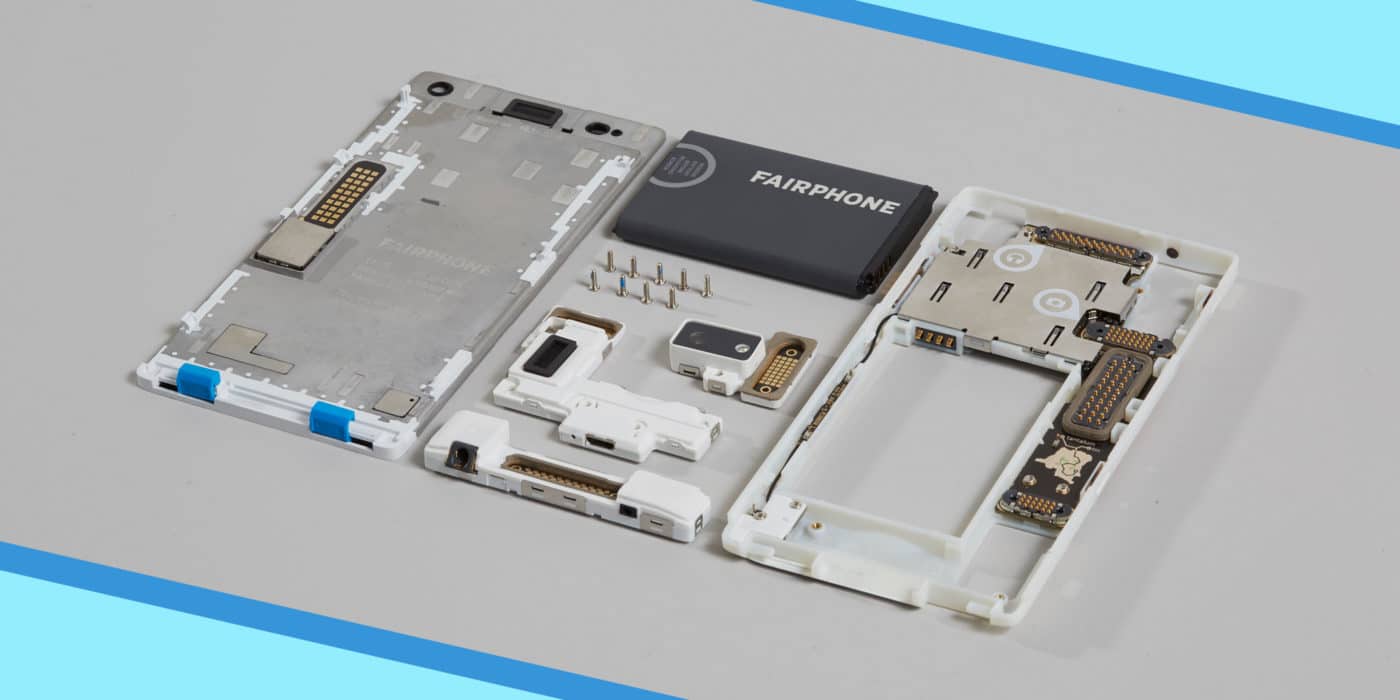Interview with Fabian Hühne of Fairphone
Everyone has a mobile phone these days; however, convenience comes at a high cost. The whole phone often has to be replaced when just one part fails, with significant issues in the manufacturing process. Fabian Hühne, Public Relations Manager with the Dutch social enterprise Fairphone, shares how the world’s first modular smartphone is using the principles of reusing and recycling to reduce the cost for all.
Parvati Magazine: Most people don’t realize that their smartphones depend on minerals sourced in countries where the mining process has high social and environmental costs. How have our phones come to be so dependent on these minerals, and as consumers, what can we do to be more responsible?
Fabian Hühne: The environmental costs are in the mining process, but also in the manufacturing and recycling of electronics materials. Electronics are hard to recycle—only about 30 to 40 percent of the materials in a smartphone can be used again. To be more responsible, it is key not only to use fewer materials, but also to use phones and other electronic products for longer.
Parvati Magazine: One of Fairphone’s goals is to create positive social and environmental impact from the beginning to the end of a phone’s life cycle. How are you making that a reality?
Fabian Hühne: Fairphone is a social enterprise that is changing the industry from the inside out—by making a smartphone! We focus on four impact areas: fair materials, good working conditions, long-lasting design, and reuse and recycle. By using conflict-free tin, tungsten, and tantalum in our phones, implementing programs to ensure better working conditions with our manufacturers, designing a phone that is easy to open and repair, and focusing on reusing/refurbishing and recycling, we are showing the electronics industry that it is possible to create (and that there is a demand for!) fairer electronics.
Parvati Magazine: Fairphone is the first smartphone to be awarded Germany’s Blue Angel environmental certification. What role do you see certifications playing in the development of sustainable industrial practices?
Fabian Hühne: In the past, we’ve been hesitant to pursue certifications; however, we recognize the role of certifications to increasingly move the needle for better environmental and social standards. They are not “set-in-stone” standards; the moment you are in, you need to comply with new standards with every update, or risk losing your certificate. This is a good way to get companies to make clear commitments to sustainability today, and in the future.
We are especially honoured to receive this recognition because it is the world’s first ecolabel. It is promoted by respected, independent German public institutions, giving it a high level of credibility. We see [this environmental certification] as an important next step in inspiring the mobile phone industry to produce more environmentally friendly products.
Parvati Magazine: Why did you build a modular smartphone? What has been the response from your customers?
Fabian Hühne: We want our users to use their phones as long as possible. This is because the most harm to the environment in a phone’s life cycle happens before it’s even used. By creating a modular phone, we’re giving our users the power to open and repair the phone themselves. If a customer drops their phone and the screen breaks, they can order a new screen module and replace it by themselves—no tools needed. The reception [from our customers] has been great. We have a really high success rate of DIY repairs.
Parvati Magazine: Influencing change for the better in the smartphone industry is a huge undertaking no company can achieve alone. Can you share the story of your partnerships focused on fair gold?
Fabian Hühne: In 2017, we kicked off an ambitious project—an innovative new partnership to proactively support more responsible gold sourcing. By uniting industry influencers with different areas of expertise, we aim to work with artisanal and small-scale mines (ASM) in Uganda to establish a sustainable, traceable gold supply chain that creates a better future for miners and their families. Besides Fairphone, initiators include Hivos, coordinator of Stop Child Labour (SCL), UNICEF, Fairtrade Foundation, and Solidaridad. Our activities are supported by funding partner RVO (Rijksdienst voor Ondernemend Nederland).
We will take a multi-pronged approach. We want to increase economic prosperity with capacity-building training (and financing) for better mining equipment. To ensure sustainable production and profits, we intend to provide long-term access to international markets by including this gold in the Fairphone supply chain and seeking other buyers in the electronics sector. We will evaluate and share our results to encourage other supply chains and industries to replicate best practices and expand the overall impact.

Image credit: Amnesty International











